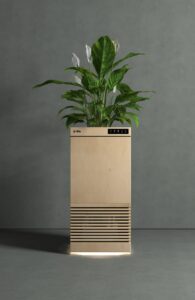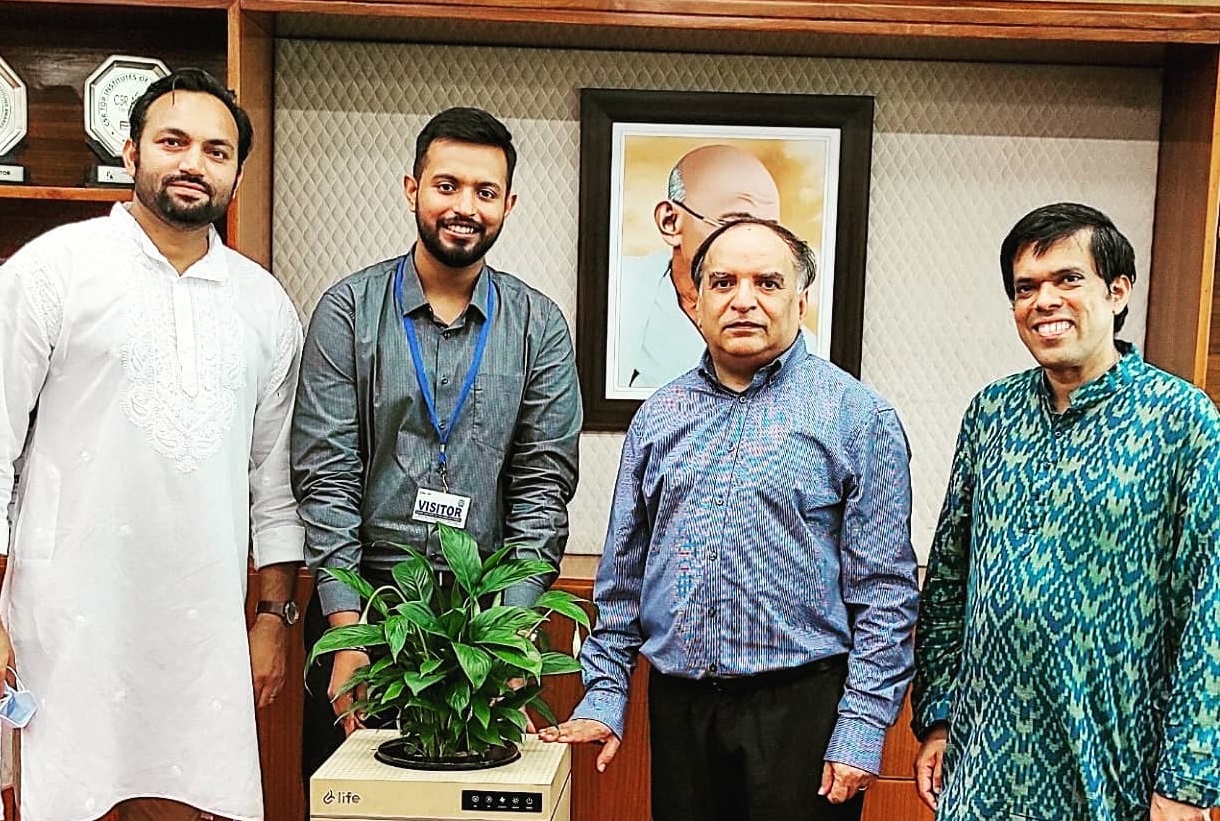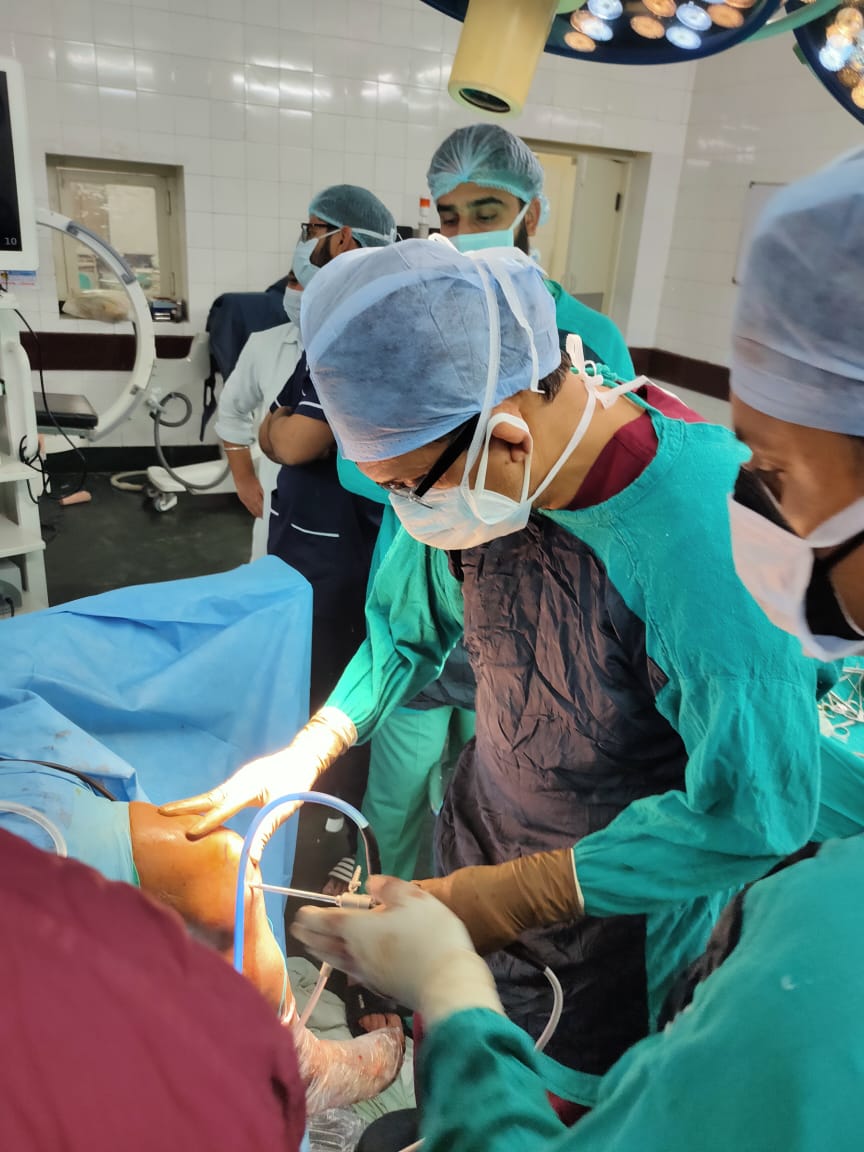World’s first ‘Plant based’ smart air-purifier “Ubreathe Life” developed by IIT Ropar
Kanwar Inder Singh/ royalpatiala.in
Budding scientists of Indian Institutes of Technology, Ropar and Kanpur and Faculty of Management Studies of Delhi University have developed a living-plant based air purifier “Ubreathe Life” that amplifies the air purification process in the indoor spaces. These indoor spaces can either be hospitals, schools, offices and your Homes.
IIT Ropar’s startup company, Urban Air Laboratory, that has developed the product claims it to be world’s first, state-of-the-art ‘Smart Bio-Filter’ that can make breathing fresh. It has been incubated at IIT Ropar, which is a designated iHub – AWaDH (Agriculture and Water Technology Development Hub) by the Department of Science and Technology, Govt. of India.
The technology works through the air-purifying natural leafy plant. The room air interacts with leaves and goes to the soil-root zone where maximum pollutants are purified. The novel technology used in this product is ‘Urban Munnar Effect’ along with patent-pending “Breathing Roots” to exponentially amplify the phytoremediation process of the plants. Phytoremediation is a process by which plants effectively remove pollutants from the air.
‘Ubreathe Life’ effectively improves indoor air quality by removing particulate, gaseous and biological contaminants while increasing the oxygen levels in the indoor space through specific plants, UV disinfection and a stack of Pre-filter, Charcoal filter and HEPA (high-efficiency particulate air) filter fitted in a specially designed wooden box. There is a centrifugal fan that creates a suction pressure inside the purifier, and releases purified air, formed at the roots, through the outlet in a 360degree direction. The specific plants tested for air purification include Peace Lily, Snake Plant, Spider plants etc. and all have given good results in purifying indoor air.
According to a World Health Organization (WHO) report, the indoor air spaces are five times more polluted than outdoor air space. That is a cause of concern especially in the present Covid pandemic times. A research, which has recently been published in The Journal of the American Medical Association (JAMA), calls upon the governments to alter building designs by fixing air changes per hour (a measure of room ventilation with outdoor air). The ‘Ubreathe Life’ can be a solution to this concern.

“This tested product ‘Ubreathe Life’ can be a game changer for maintaining clean air indoors. Reason being, the new research also suggests that Covid-19 vaccination by itself may not guarantee safety at workplaces, schools and even closed fully air-conditioned homes unless air filtration, air purification and indoor ventilation becomes part of the building design. The results of testing, conducted by National Accreditation Board for Testing and Calibration Laboratories and the Laboratory of IIT Ropar maintains that the AQI (Air Quality Index) for a room size of 150sq.ft. drops from 311 to 39 in 15 minutes after using ‘Ubreathe Life’, claims Director, IIT, Ropar, Prof. Rajeev Ahuja. He claimed that this is first ever living plant based air-purifier in the world that can be a game changer.
Sanjay Maurya, CEO, Ubreathe claims that the product has certain biophilic benefits, such as supporting cognitive function, physical health, and psychological well-being. Thus, it’s like having a bit of Amazon forest in your room. The consumer need not water the plant regularly as there is a built-in water reservoir with a capacity of 150ml which acts as a buffer for plant requirements. He says that the device supplies water to the roots whenever it gets too dry.
Recommending this researched product, Dr. Vinay and Dr. Deepesh Agarwal from AIIMS, New Delhi said that the ‘Ubreathe Life’ infuses oxygen in the room making it conducive to patients with breathing issues.
Prof. Ahuja assured that IIT is capable of producing the product in large quantity to market it.
September 1,2021













